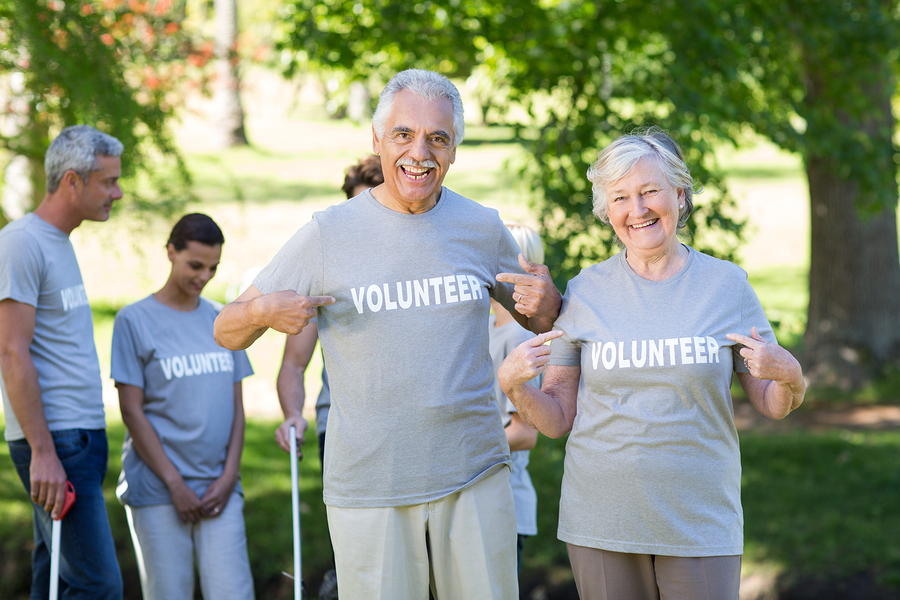Volunteerism in Retirement: Good for Body and Soul
Leisure time. It’s often cited as the top benefit of retirement.
But many people fail to make plans for what to do with their newfound time. They quickly find themselves bored and unstimulated. Depression, social isolation and deteriorating mental and physical health frequently ensue.
According to several studies, they should consider volunteering.
Research conducted by the Center for National and Community Service and other national organizations show the following benefits linked to sustained volunteerism:
- Lower depression.
- Lower incidence of heart disease.
- Lower blood pressure.
- Lower mortality rates.
- Lower disability rates.
- Greater happiness, higher self-esteem, sense of purpose, and control.
The studies demonstrate that the benefits were greatest amongst retirees who volunteered regularly. The AARP points to a study showing that people over 60 who volunteer 100 or more hours per year are the most likely to gain health benefits.
Those benefits are linked to several factors. Seniors who volunteer tend to feel empowered by their volunteer work. They often cite having a reason to wake up and having a schedule to follow as great motivators. They benefit socially as well, interacting with fellow volunteers and other program personnel. Many form new friendships with their peers. Volunteering also facilitates multi-generational interactions and opportunities to engage and with people of different backgrounds and socio-economic levels.
Many volunteer seniors also develop new skills that challenge them intellectually or enable them to apply past job skills in new ways. The renewed sense of purpose is rejuvenating and enlightening for many, further underscoring the emotional impact of giving back.
The best way to find meaningful volunteer work includes first determining what issues are most pressing to you. For some, that may mean working with underserved children, while for others, the environment may be most in need of help. Finding organizations that are volunteer-centric is also recommended. These groups provide support, training and rewards programs that recognize and celebrate volunteers.
With the population rapidly aging, and health care expenses on the rise, finding meaningful ways to use discretionary time is vital to aging well. Ultimately, helping those in need has a significant added benefit of contributing to the health and wellness of the givers themselves. A win-win for everyone involved.
At Silverman Financial, we strive to establish fulfilling retirement roadmaps that enable our clients to pursue new interests, give back to their communities and live meaningful retirements.




